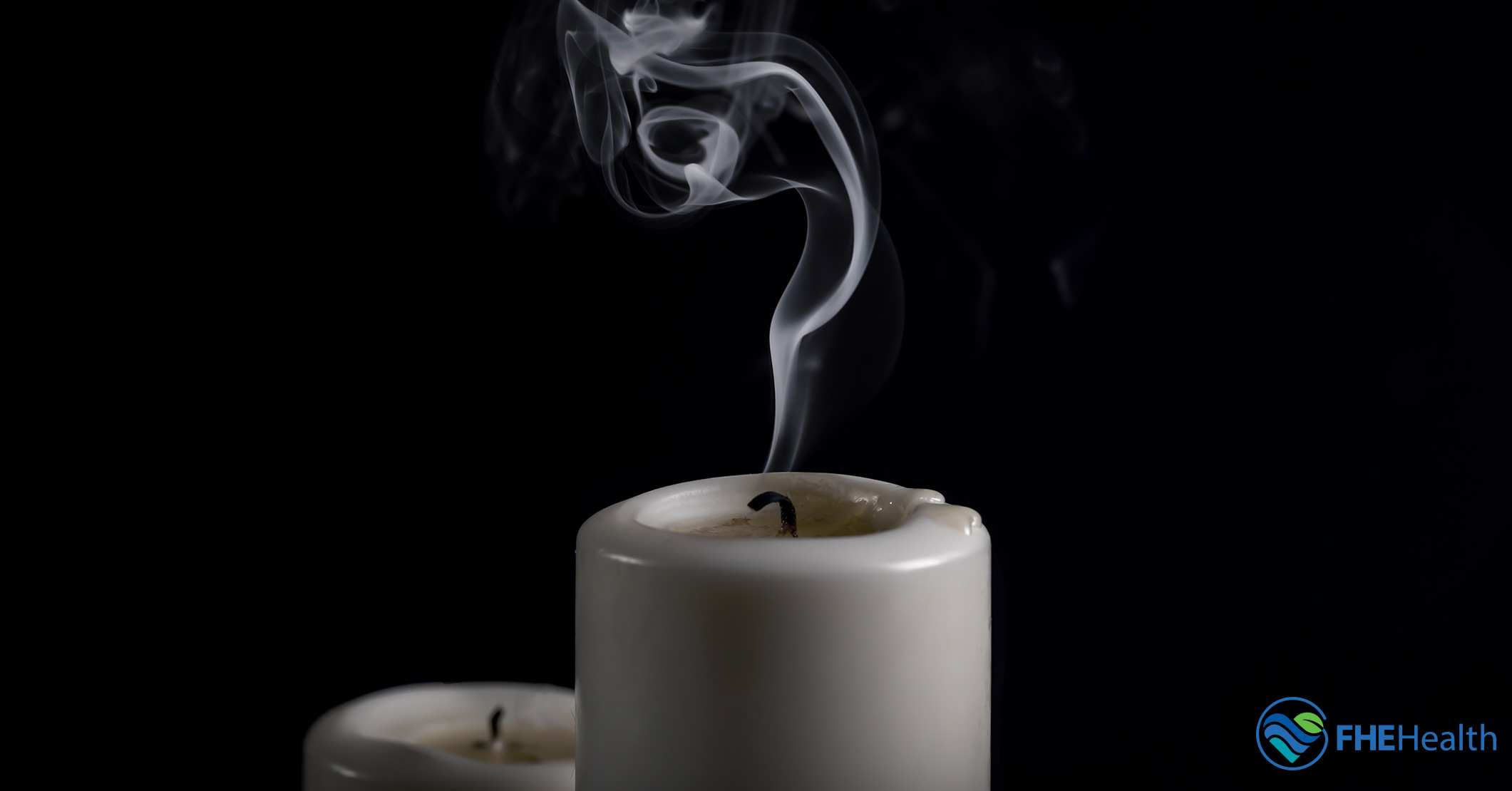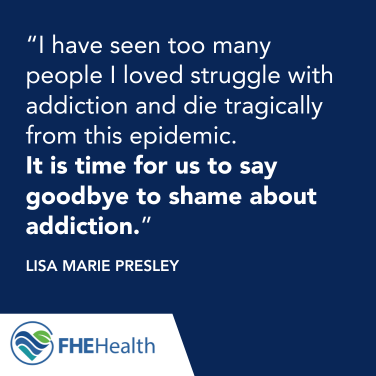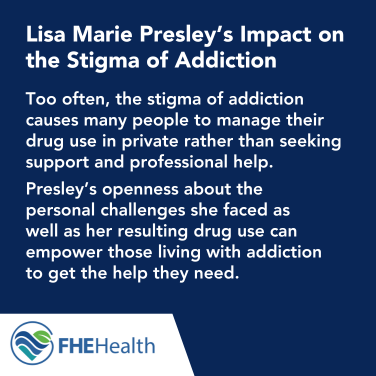
Lisa Marie Presley may be best known as the daughter of famous singer and actor Elvis Presley and actress Priscilla Presley, but she was a well-known public figure in her own right. Born in 1968, Presley was just nine years old when her father died of a drug-related heart attack. She attended her first rock concert just a couple of years later, sparking her own love for music and performing. Her musical career featured three studio albums and several singles, including some duets with her father using songs from tracks he’d released shortly before his death.
Presley had four children, including Riley and Benjamin Keough, born in 1989 and 1992, respectively, and Harper and Finley Lockwood, born in 2008. At age 25, she became the sole heir of Elvis’s estate, most of which she sold in 2004. Throughout her life, she donated her time and money to various humanitarian efforts, mainly through The Presley Foundation, which she founded in 2007.
In January of 2023, Presley experienced a cardiac arrest at her California home. While her heart was restarted with CPR en route to the hospital, she died later that day. Her death followed years of drug use, highlighting the fact that anyone can be vulnerable to developing an addiction.
Lisa Marie Presley’s Struggles in Her Own Words
Presley’s life featured several challenging chapters, from difficult divorces and custody battles to the suicide of her son. In a 2018 interview, Presley noted that her struggles with addiction didn’t begin until she was in her 40s.
Presley first spoke of her addiction to painkillers in the book The United States of Opioids: A Prescription for Liberating a Nation in Pain by Harry Nelson. She wrote: “You may read this and wonder how, after losing people close to me, I also fell prey to opioids. I was recovering after the [2008] birth of my daughters, Vivienne and Finley when a doctor prescribed me opioids for pain. It only took a short-term prescription of opioids in the hospital for me to feel the need to keep taking them.” She continued, “[It’s] a difficult path to overcome this dependence and to put my life back together. Even in recent years, I have seen too many people I loved struggle with addiction and die tragically from this epidemic. It is time for us to say goodbye to shame about addiction. We have to stop blaming and judging ourselves and the people around us … That starts with sharing our stories.”
During an interview, when talking about her drug use habits following some challenging circumstances, Presley noted, “I was not happy. And by the way, the struggle and addiction for me started when I was 45 years old. It wasn’t like it was happening all my life.”
Presley also reflected on the progress she made in recovery, saying, “I am proud. I’ve come a long way. I have a therapist, and she was like, ‘You’re a miracle, you really are.’ She’s like, ‘I don’t know how you’re still alive.’ I’m not perfect, my father wasn’t perfect, no one’s perfect. It’s what you do with it after you learn, and you try to help others with it.”
According to multiple sources, Presley was using opioids prior to her death, and this may have contributed to the circumstances leading to cardiac arrest.
How Lisa Marie Presley Raised Awareness about Mental Health
 Like many people, Presley used drugs to cope with difficult circumstances, namely, her son’s suicide. She wrote about her grief in a 2022 essay in which she shared that she’d learned that grief is unrelenting and isolating. She also spoke of how she felt responsible for her son’s death and felt stigmatized by others.
Like many people, Presley used drugs to cope with difficult circumstances, namely, her son’s suicide. She wrote about her grief in a 2022 essay in which she shared that she’d learned that grief is unrelenting and isolating. She also spoke of how she felt responsible for her son’s death and felt stigmatized by others.
She wrote, “Grief is something you will have to carry with you for the rest of your life, in spite of what certain people or our culture wants us to believe. You do not ‘get over it,’ you do not ‘move on,’ period.” She went on to say, “You will become a pariah in a sense. You can feel stigmatized and perhaps judged in some way as to why the tragic loss took place. This becomes magnetized by a million if you are the parent of a child who passed. No matter how old they were. No matter the circumstances. I already battle with and beat myself up tirelessly and chronically, blaming myself every single day, and that’s hard enough to now live with, but others will judge and blame you too, even secretly or behind your back, which is even more cruel and painful on top of everything else.”
While Presley’s essay captured the pain she felt at her son’s passing, it also highlighted the importance of seeking help. She wrote, “This is where finding others who have experienced a similar loss can be the only way to go. Support groups that have your specific kind of loss in common. I go to them, and I hold them for other bereaved parents at my home. Nothing, absolutely NOTHING, takes away the pain, but finding support can sometimes help you feel a little bit less alone.”
Lisa Marie Presley’s Impact on the Stigma of Addiction
 While Lisa Marie Presley’s struggle with addiction ultimately led to her death, it serves as a reminder that anyone can develop a substance use disorder. According to the National Institute of Mental Health, substance use disorder tends to run in families, indicating that certain genes may increase someone’s likelihood of developing an addiction. Similarly, people living with conditions such as depression, anxiety, or post-traumatic stress disorder may be more likely to self-medicate with recreational drug use or alcohol. This dependence on substances as a coping mechanism can quickly lead to addiction, as it did for Presley.
While Lisa Marie Presley’s struggle with addiction ultimately led to her death, it serves as a reminder that anyone can develop a substance use disorder. According to the National Institute of Mental Health, substance use disorder tends to run in families, indicating that certain genes may increase someone’s likelihood of developing an addiction. Similarly, people living with conditions such as depression, anxiety, or post-traumatic stress disorder may be more likely to self-medicate with recreational drug use or alcohol. This dependence on substances as a coping mechanism can quickly lead to addiction, as it did for Presley.
Too often, the stigma of addiction causes many people to manage their drug use in private rather than seeking support and professional help. Presley’s openness about the personal challenges she faced, as well as her resulting drug use, can empower those living with addiction to get the help they need.
Lisa Marie Presley’s Humanitarian Efforts
Lisa Marie Presley was often in the spotlight for her music as well as her personal life, but she also played an active role in fighting poverty. In 2007, she founded The Presley Foundation, a nonprofit organization that provides grants for rent-free housing, childcare, career and financial counseling, and other tools to fight homelessness. Presley donated $1.3 million to the Metropolitan Inter-Faith Association to build Presley Place, a 12-unit townhouse complex that provides transitional housing for unhoused individuals.
Homelessness and drug use often go hand-in-hand, with studies showing a strong connection between poverty and addiction. While Presley wasn’t active in addiction advocacy, her humanitarian efforts, combined with her openness regarding her own addictions, may pave the way for those seeking sobriety.
What to Take Away from Lisa Marie Presley’s Story
Lisa Marie Presley led a very public life that was filled with as many low points as high points. Like many people, Presley used drugs as a way to cope with heartbreaking circumstances. While most people don’t have firsthand experience with living life in the spotlight, many can identify with her reflections on the pain and grief she experienced and her struggles to cope with loss.
The good news is that addiction help is available. Presley’s story shows that the journey isn’t easy, but with professional help, those living with addictions can learn to build healthy habits, develop effective coping strategies and learn to manage challenges without drugs or alcohol.






